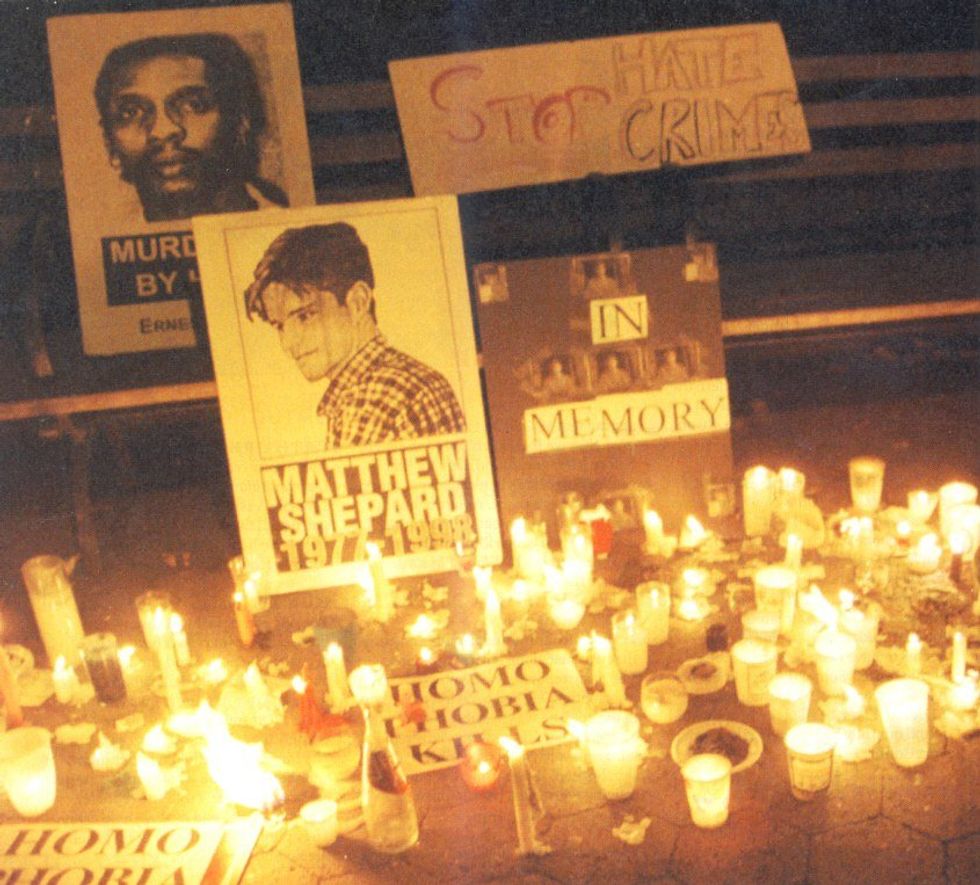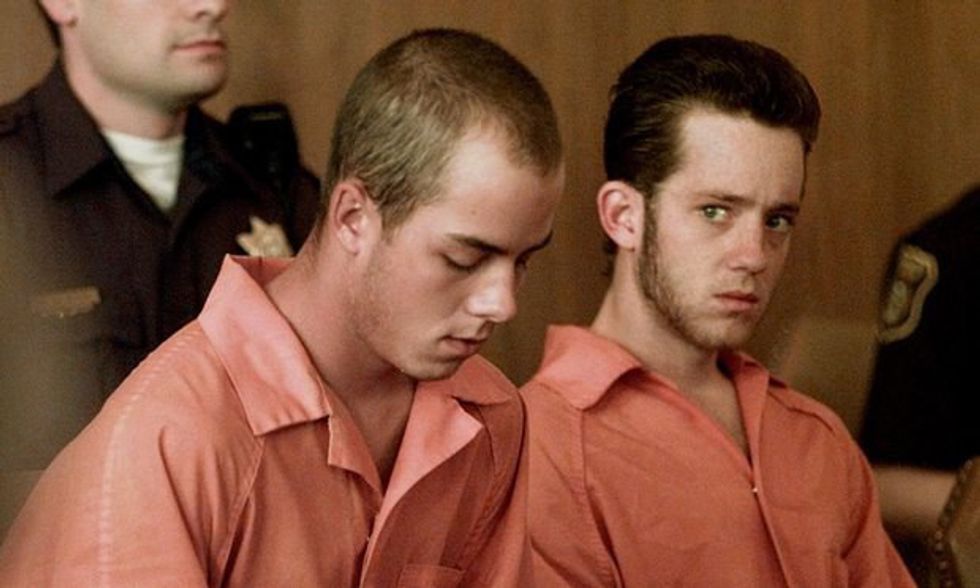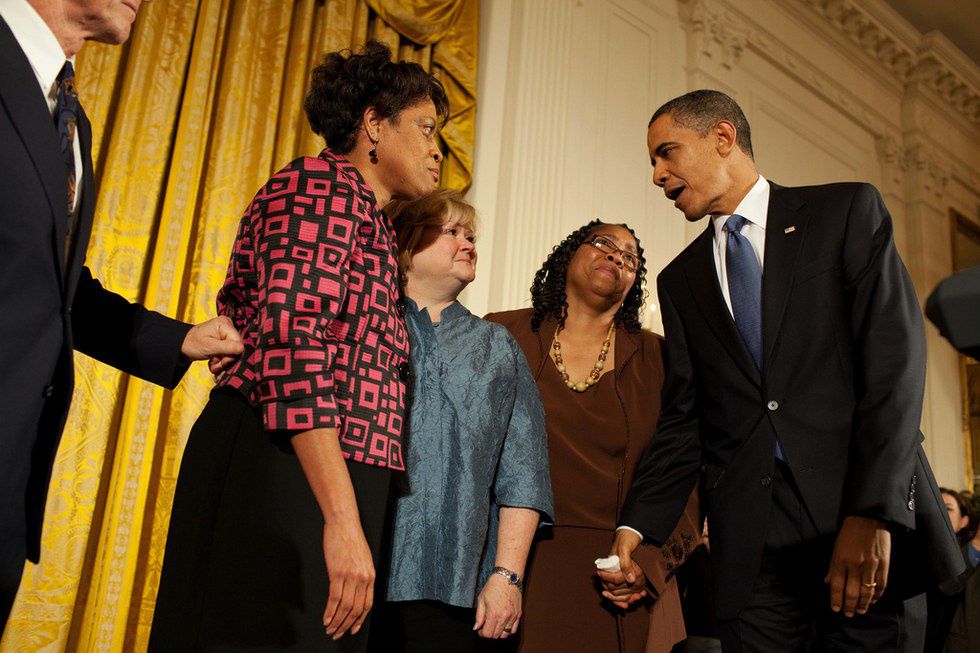(Warning: this piece recounts a homicide of a member of the LGBTQ community).
It has been 18 years since Matthew Shepard was murdered in one of the most notorious hate crimes in America's history. On October 12th, we remember him.
Matthew Shepard was only 21 when he was robbed, pistol-whipped, tortured, and left to die while tied to a fence on October 6th 1988, in Wyoming. Shepard was discovered 18 hours later by a passing cyclist, in critical condition and he was then transported to Colorado where he died in hospital 6 days later.
Shortly after the attack, two men (Aaron McKinney and Russell Henderson) were arrested an initially charged with attempted murder, kidnapping, and aggravated robbery. The event gained much media attention, and it was questioned to what extent Shepard's sexuality played in the incident. It was discovered that the pair had falsified their sexuality to gain Shepard's trust.
During the pretrial and the trial, it was argued by McKinney's prosecutor that the events were premeditated and planned, however the lawyer assigned to McKinney stated that the original plan was simply to rob Shepard. However, within his testimony it was revealed that they had then killed Shepard in a hate filled rage after he [Shepard] had placed a hand on McKinney's knee.
Following Shepard's death, the charges on McKinney and Henderson were changed from attempted murder to first degree murder, and the death penalty was highly considered, before they were convicted with life sentences with no parole.
The terrifying hate crime was discussed by news, individuals, and other aspects of mass media. Particularly focused on the fact that at this time, what happened to Matthew was not considered a hate crime, as crimes committed based on sexual orientation were not prosecutable under such.
As a result of this, the incident led to great coverage as to why the legislation needed to be changed — both at a state level, and federal. When legislation change was attempted in Wyoming, where the incident occurred, it resulted in a 30-30 tie, and no changes were made. Following this, in 1999, President Bill Clinton attempted to change legislation of hate crimes to include homosexual individuals, women, and people with disabilities, but this was denied by the House of Representatives. In 2007, many years later, the Matthew Shepard Act was introduced, but not passed as President George Bush made it very clear that he would veto the legislation should it appear at his desk. This Act was put on hold for a while until President Barack Obama stated his commitment to getting it passed; it was then made an amendment in 2009.
The Matthew Shepard Act that was passed in 2009 essentially changed hate crime legislation to include crimes committed against individuals based on their gender, sexual orientation, gender identity, or disability. It also allowed for more money given to governments to allow a greater ability to engage in the investigation of hate crimes not investigated by local authorities, and more funding to help both state and local authorities prosecute hate crimes.
Luckily, Matthew Shepard's death was not in vain. He not only inspired a change in legislation, but a book, a film, a play, a movie, songs, and so much more. He inspired many changes and I'm sure he would be thrilled with the changes made since the incident — with changes in marriage equality, anti-discrimination laws, alliances in schools, and more.
His death is still haunting 18 years later; he has become a movement.
In October, we remember him.

























